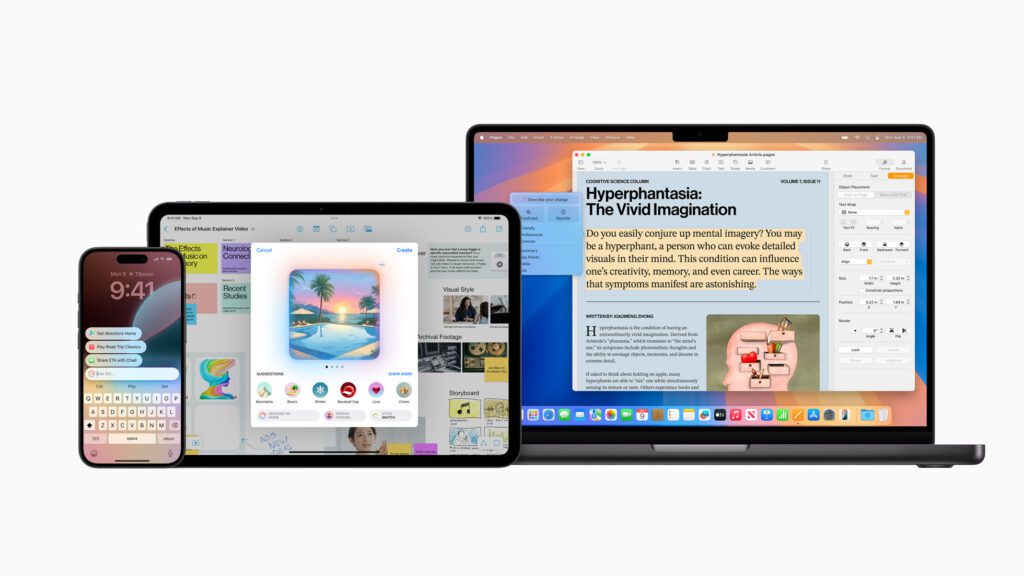Apple’s AI Ambitions Dimmed by Delay and Competition: Examining the Impact of iPhone 16’s Underwhelming Launch
The launch of Apple’s much-anticipated iPhone 16 series was expected to signify a thrilling advancement in artificial intelligence deployment for the tech giant. However, the reality turned out to be quite the opposite, leaving many consumers and industry experts feeling disappointed. The smartphone lineup, touted as Apple’s first AI-powered series, is still in beta testing and is projected to take several months—or even years—before it reaches a global audience. This underwhelming debut was further overshadowed by Huawei’s introduction of its new Mate XT smartphone just hours later, featuring significantly more sophisticated AI capabilities powered by its proprietary Kylin chips.
The AI Landscape: Apple vs. Huawei
Huawei’s swift launch of the Mate XT highlights its relentless spirit of innovation, even amidst rigorous U.S. sanctions that have affected its operations. The timing of its release poses a serious threat to Apple’s market presence in Mainland China—a region that has long been crucial to the company’s success. Consumer sentiment and market realities are shifting, and it’s imperative to understand the implications of these developments.
Apple’s AI Strategy: Is It Ready for the Spotlight?
The prolonged timeline for releasing AI features has stirred skepticism among analysts regarding Apple’s technological readiness. According to Laura Martin, an analyst with Needham, Apple’s communication during the iPhone 16 event centered around a message of future promises rather than present capabilities. The Apple Intelligence suite, which encompasses a range of AI tools, had been discussed since June at their developer conference but will not be available in the new devices until next year.
Currently, the available AI functionalities are limited, focusing mainly on basic tasks like summarizing messages rather than offering more advanced features that could rival competitors.
Local Disappointment: The Reaction in China
The sentiment around the iPhone 16 launch turned somber for many Chinese consumers who were eager for AI features. The expectation that these capabilities would not be available in their language until next year left many feeling shortchanged. In stark contrast, Huawei’s Mate XT promises immediate access to its AI voice assistant, which includes a variety of functions such as text summarization, translation, and even AI-enhanced photo editing.
This disparity raises questions about whether Apple can justify its pricing strategy in China, especially amid growing discontent among consumers voicing frustrations on social media platforms. Comments on Weibo encapsulated this feeling of betrayal, with users feeling that without the promised features, the iPhone should be offered at a substantially lower price.
The Competitive Edge: Huawei’s Explosive Growth
Meanwhile, Huawei is making waves in the smartphone market with remarkable pre-order figures for the Mate XT, already surpassing four million, a statistic highlighting the fierce demand for premium technology in the region. Amidst ongoing sanctions, Huawei continues to make bold advancements, recently overtaking Samsung to become the leading vendor of foldable smartphones.
Richard Yu, Huawei’s executive director, showcased the company’s resilience and commitment to innovation, announcing a product born of years of dedicated effort despite external pressures.
Regulatory Challenges and Market Implications for Apple
Apple’s delay in rolling out its AI features in China also poses a significant risk, primarily due to the intricacies of the regulatory environment. The Ministry of Industry and Information Technology in China has greenlit a selection of large language models for public use, all developed domestically, leaving foreign competitors, including Apple, on uncertain ground.
Without a clear timeline for when—or if—Apple Intelligence will be available in China, the company risks losing its foothold in a market that has seen its sales numbers slide from third to sixth place. Although Apple has historically enjoyed strong demand and product launches, the landscape is rapidly evolving.
Conclusion: Navigating the Future of Artificial Intelligence in the Smartphone Market
Ultimately, Apple’s foray into AI is fraught with challenges that could shape its future in the smartphone sector, particularly in China. The company’s ability to deliver its AI features quickly and effectively could determine whether it can reclaim its lost market share amidst intense competition. As local players like Huawei continue to innovate and cater to consumer needs swiftly, Apple faces the high stakes of adapting its strategy to ensure continued relevance in this critical marketplace.
With the game of technological chess intensifying, it remains to be seen whether Apple will rise to the occasion or falter in the face of uncompromising competition. The future of the company in AI-driven smartphones hangs in the balance, making it a vital area to watch in the coming months.




